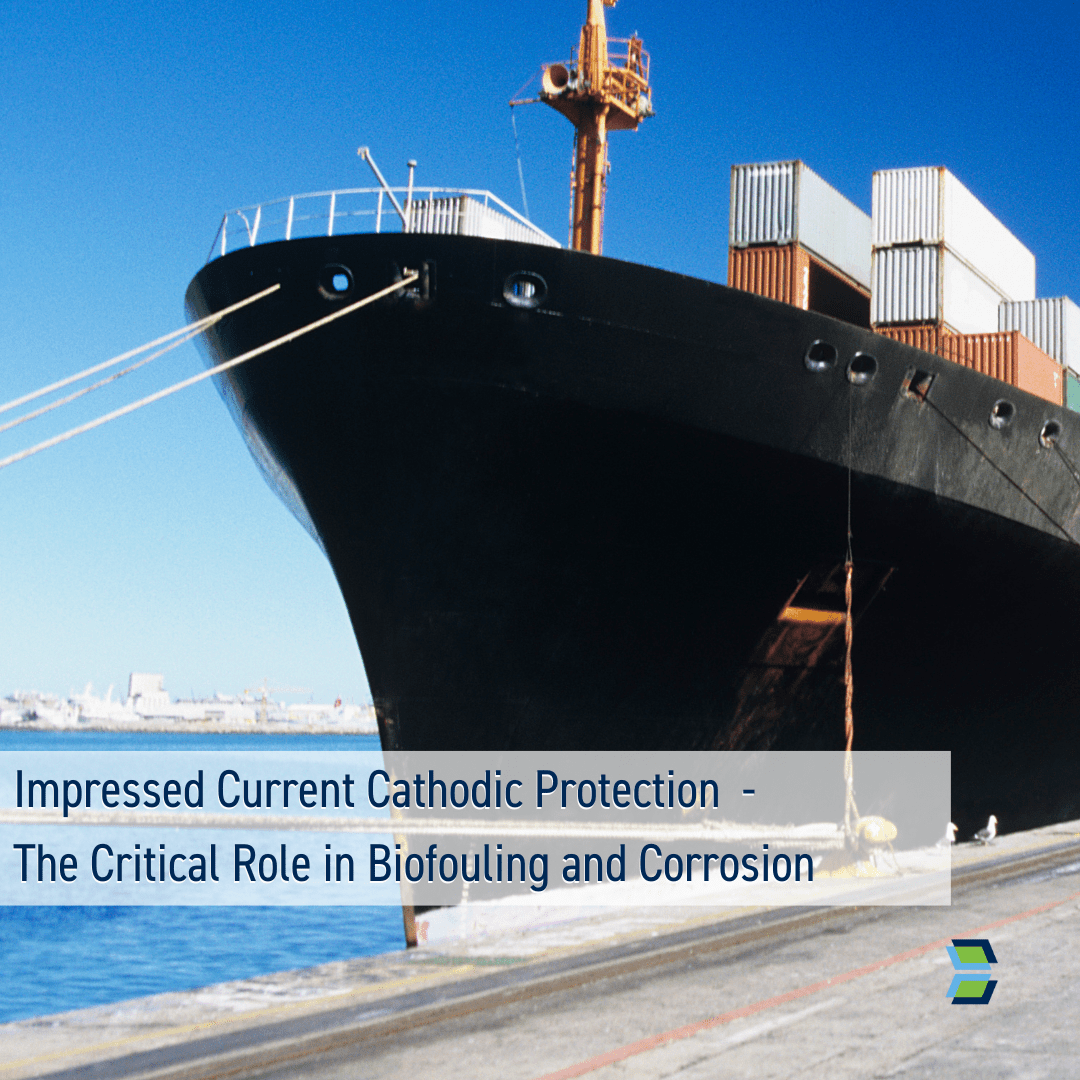
ICCP – The Critical Role in Biofouling and Corrosion
Understanding the pivotal role of Impressed Current Cathodic Protection (ICCP) in enhancing fuel efficiency, promoting environmental sustainability, and combating Invasive Aquatic Species (IAS) is essential for any maritime operation. This month, let’s explore the practical solutions ICCP provides to the maritime industry’s most pressing challenges, including biofouling, corrosion and the spread of IAS.
ICCP: A Dual Force Against Biofouling and Corrosion:
The challenges of biofouling and corrosion significantly impact vessel drag, fuel efficiency and emissions and contribute to the ecological problem of the spread of invasive aquatic species. ICCP effectively solves these problems, enhancing vessel performance and contributing significantly to environmental conservation.
Reassessing Sacrificial Anodes – Corrosion and Biofouling Management:
Traditionally, sacrificial anodes have been the standard for cathodic protection but come with environmental drawbacks and are prone to heavier fouling since antifouling coatings cannot be applied effectively to these physically complex areas. The unprotected surfaces of sacrificial anodes, along with the narrow gaps around the edges where they are affixed to the vessel, make them more susceptible to biofouling and can facilitate the transport of invasive aquatic species.
The Environmental and Economic Edge of ICCP:
Impressed Current Cathodic Protection systems are not merely a short-term fix; they represent a long-term commitment to enhancing the sustainability and efficiency of maritime operations and are significantly more environmentally friendly options than traditional sacrificial anodes. ICCP systems are known for releasing virtually no toxic materials into the environment.
As well as being equipped with automatic protection adjustment, ICCP offers a more controlled and efficient approach to corrosion protection, which is generally considered more cost-effective in the long run. These systems notably increase the intervals between drydock visits and prolong the lifespan of essential underwater components like rudders, shafts, struts and propellers.
Conclusion:
Embracing Impressed Current Cathodic Protection systems in maritime operations is essential for a more sustainable and profitable future. At EMCS Industries, we are committed to providing solutions and guiding vessel owners/operators in adopting ICCP. We understand the unique challenges of different maritime environments and ensure our approach is comprehensive and practical for our customers. Join us as we navigate towards a more efficient, environmentally friendly and sustainable maritime future with an effective biofouling and corrosion management plan.
